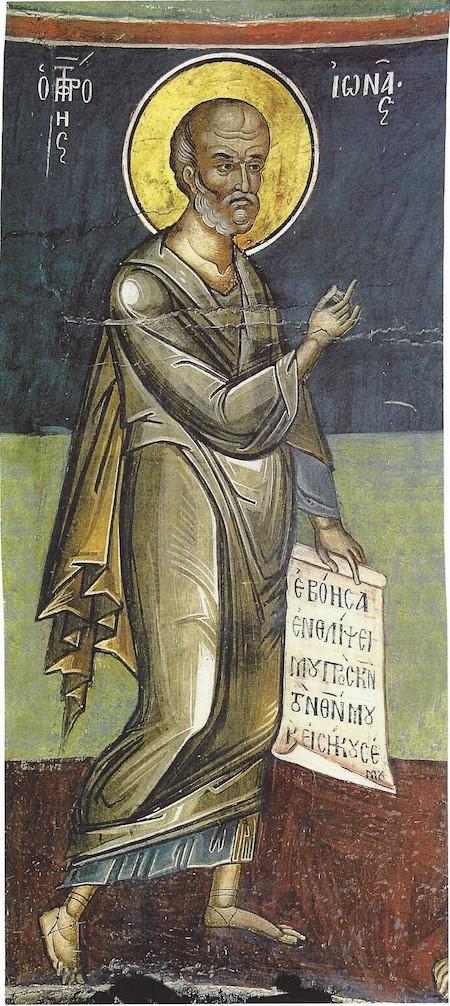
The Assyrians accepted the word of God, as delivered by Jonah, 700 years before the coming of Christ. Assyrians were the first to accept Christ. Jonah's message was of repentance and it was heeded. Christ's message was of love and it was heeded. The Assyrian church endeavored in the most remarkable missionary enterprise in Christian history, reaching to China, Mongolia, Korea, Japan and the Philippines. The Mongolian alphabet is based on Aramaic. The Buddhist ecclesiastical structure is modeled on the Assyrian Church of the East. "Torah Borah" is Aramaic for "arid mountain."
Source: aina.org
The memory of your Prophet Jonah, We celebrate today, O Lord.
By his prayers we entreat you: O Christ God, save our souls!
"a three day journey to cross" - modern archaeological reconstructions of the walls of Nineveh show the city proper to much smaller than this. Greek historians describe it as 22 to 60 miles in circumference, leading some commentators to suggest it was a 3 day walk around the city - but that is not what the text says. Also, Sennacherib proudly describes extending the walls from 5 to 7½ miles circumference [the annals of Sennacherib, 111], and the Greek historians like Aristotle disdained actually measuring it.
The region governed by Nineheh was by all account about 60 miles across - a literal three day journay. The same Hebrew word is used to translate both city and region from Akkadian. Sennacherib uses the word for region in his account from 705 BC - but his description is of moving the capital of Assyria from Caleh to Ninevah, totally changing the administrative boundaries.
Finally, some commentators suggest "three days" is a figure of speech as in many other ancient and Biblical cases. E.g. Aristotle says "when Babylon was captured a considerable part of the city was not aware of it three days later." [Politics 3.1.12]
"The men of Nineveh will stand at the judgment with this generation and condemn it; for they repented at the preaching of Jonah, and now One greater than Jonah is here." Matthew 12:41
Prayers were offered to God to help with the plague. The Assyrian church, recalling Jonah's visit to Assyria more than 1000 years earlier, asked Assyrians to hold a fast for salvation, and the Assyrians did, and the plague subsided. Thus began Jonah's fast.
The Rogation of the Ninevites, as it is known, is observed by all Assyrian church denominations as well as most other Eastern churches (Maronite, Ethiopian, Coptic, Eritrean). It is a three day fast, from February 14 to 16, where no food or drink is consumed. In Assyrian tradition, on the third night, just before going to sleep, young men and woman eat a handful of parched barley and salt (called pokhoon). If the man or woman dreams of a person offering them water that will be the person they may possibly marry.